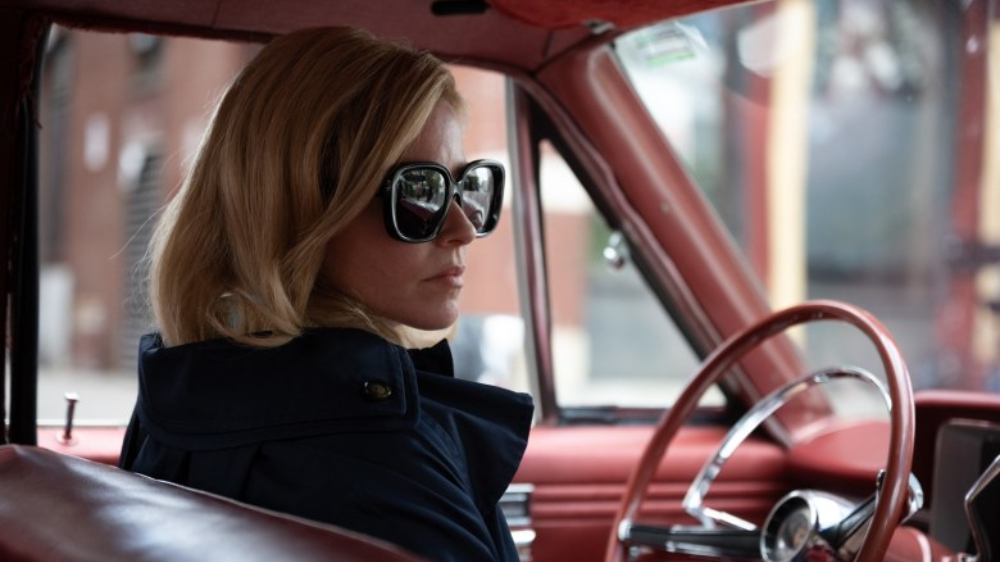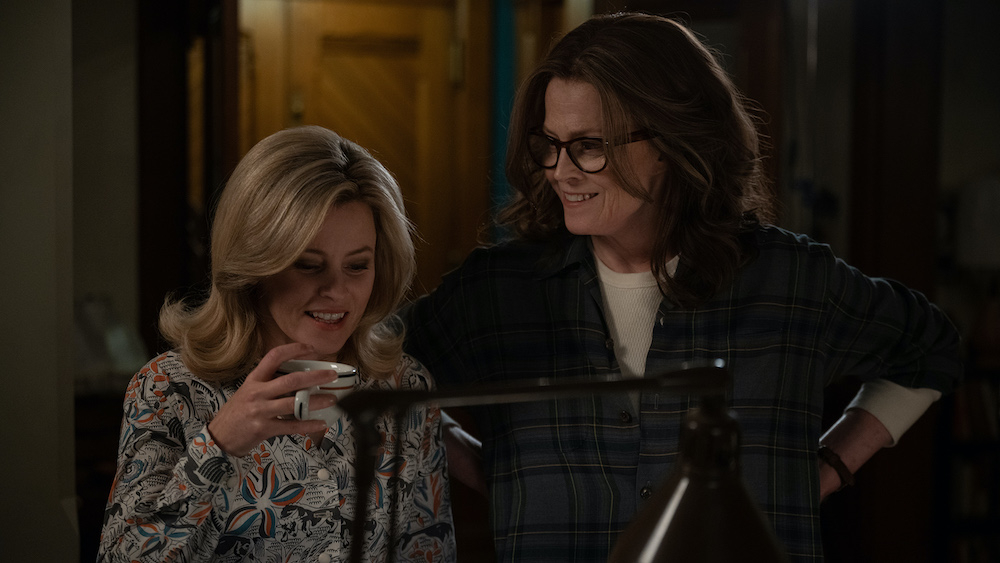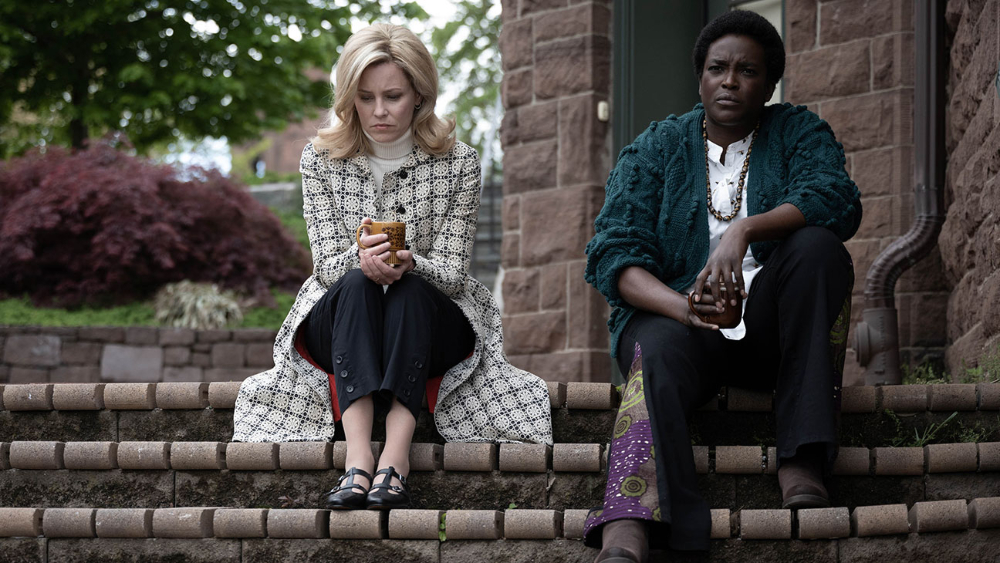
In 1973, the U.S. Supreme Court made abortion legal across the country, and 49 years later, the Sundance Film Festival hosted the world premiere of Call Jane, which tells the story of the women who ran underground abortion facilities that were necessary prior to that landmark decision. The film has limited commercial appeal beyond the arthouse crowd, but this is still an important story worth telling, and seeking out as a viewer.
Hailing from director Phyllis Nagy, who previously wrote Carol, the film could not be more timely, as the Supreme Court is on the verge of significantly scaling back abortion rights, if not explicitly overturning Roe v. Wade before it can reach its golden anniversary. The powerful historical significance of the present moment, though, is mostly absent from Nagy’s film. Ultimately, this sensitive and well-made movie falls short of excellence, in part because it seems unaware of this fork-in-the-road moment for the movement, but also because of the low-stakes, lighthearted manner in which Nagy and screenwriters Hayley Schore and Rosina Sethi chose to tell this story.
Call Jane fictionalizes a group of women known as “The Janes” or the “Jane Collective,” who ran underground abortion facilities in Chicago from the late 1960s until that fateful January in 1973. It centers around Joy (Elizabeth Banks), a traditional suburban housewife whose pregnancy puts her life at risk. After her husband (Chris Messina) suggests that she ride out the odds of surviving the pregnancy and the hospital’s board denies her request for a life-saving procedure, Joy decides to take matters into her own hands. Eventually, she spots an ad on a street pole with the eponymous admonition to “call Jane.” The moniker is, of course, just a pseudonym. “We are all Jane,” explains the group’s decisive leader (Sigourney Weaver).
Joy eventually becomes an integral part of the Jane operation, contending with the money-hungry doctor (Cory Michael Smith) they employ to perform the procedures, and with her best friend and neighbor (Kate Mara), who finds herself at Jane’s house more than Jane herself. The group faces several challenges, including the prohibitive cost ($500-$600) that the procedure represents for some women, particularly women of color, as explained by Jane member Gwen (Wunmi Mosaku). Additionally, given the staggering number of applicants for abortions, the group is faced with the difficult task of deciding who will be selected for the procedure, as the decision-making process exposes additional layers of injustice and a lack of equal access within an already unfair system, all while threatening the unity of the movement itself.

In short, the stakes — life, death, justice, equality, legality — are quite high, and the topics — abortion, civil disobedience, women’s equality — have real weight. It is curious, then, that Call Jane is nevertheless one of the quietest films in this year’s Sundance lineup. The tensest moment in the movie arrives early on when Joy gets an abortion herself. Audiences accustomed to seeing these types of films surely expect that something will go terribly wrong, but either way, the fundamental unfamiliarity and invasiveness of this procedure are enough to convey Joy’s anxiety, if not sheer terror, and Banks’ pitch-perfect performance brings those emotions to the forefront.
Unfortunately, that’s the film’s only real pressure point. Though most viewers will expect other moments of tension, if not horror, none ever present themselves. Nagy explained at a pre-screening Q&A that her motivation was to celebrate these women with comedy and with a lighter heart. That may be so, but this conceit doesn’t always work. For example, when Joy’s family (first, her daughter, and later, her husband) find out what she’s been up to, one would expect a much more emotional reaction than what is eventually portrayed on screen. Other than Banks’ persistently emotive performance and Weaver’s tough-as-nails, persuasive depiction, everyone and everything else seems little more than an accessory in this film.
Even Call Jane‘s craft contributions are a modest affair, although low-budget tech values are not uncommon among indie movies at Sundance. Thankfully, for a film like this, straightforward trappings are an asset, and Call Jane‘s mostly muted crafts help the film stay focused on its story. That said, the most notable below-the-line contribution comes from Costume Designer Julie Weiss (Frida, 12 Monkeys), who adorns the film’s ensemble in solid period regalia without devolving into the stereotypical parade of bell-bottoms and hippie vests that have become cliches of films set in the ’60s and ’70s. Instead, Weiss starts off with a stunningly elegant set of clothes as Joy and her husband attend a stuffy event in downtown Chicago, and later makes the activists a group of quietly stylized women. A lighthearted-but-playful score by Isabella Summers also fits well with the somewhat comedic proceedings.

By the end of the two-hour runtime, an answer perhaps emerges as to why Nagy chose a different route than the usual road that abortion-related movies travel. Her goal is to celebrate a movement, not eulogize it. Her focus is on the collective achievement of these women, buoyed by their dedication and commitment, and not on over-dramatized suspense. One cannot fully resent these cinematic decisions. Certainly, the lack of predictability is welcome, as is the immensely likable Banks, who delivers a career-best performance that showcases a wide range of emotions.
However, the final verdict on Call Jane will be tough to render until history has had its say. Nagy is, of course, aware of what is going on in America these days. By the end of the film, she makes a point of having Weaver’s character state the outcome (and the 7-2 vote) of Roe v. Wade in a pellucid and direct way. Her message appears to be: women organized their way around the pre-Roe world and they’re prepared to do it again if necessary. She may very well be right. But the post-Roe world could bring a fresh set of challenges to the women at the heart of this film, particularly the women of color and lesser means that Call Jane does not neglect to remember.
Whatever else happens after Roe remains to be seen and will play itself out in the real world, which Hollywood will only be able to follow. It is at that point that one will be able to fully determine whether Call Jane‘s light touch with regard to this heavy subject matter was sagely premonitory, or whether it was dangerously unaware.
Grade: B
Call Jane is an acquisition title at the 2022 Sundance Film Festival.





